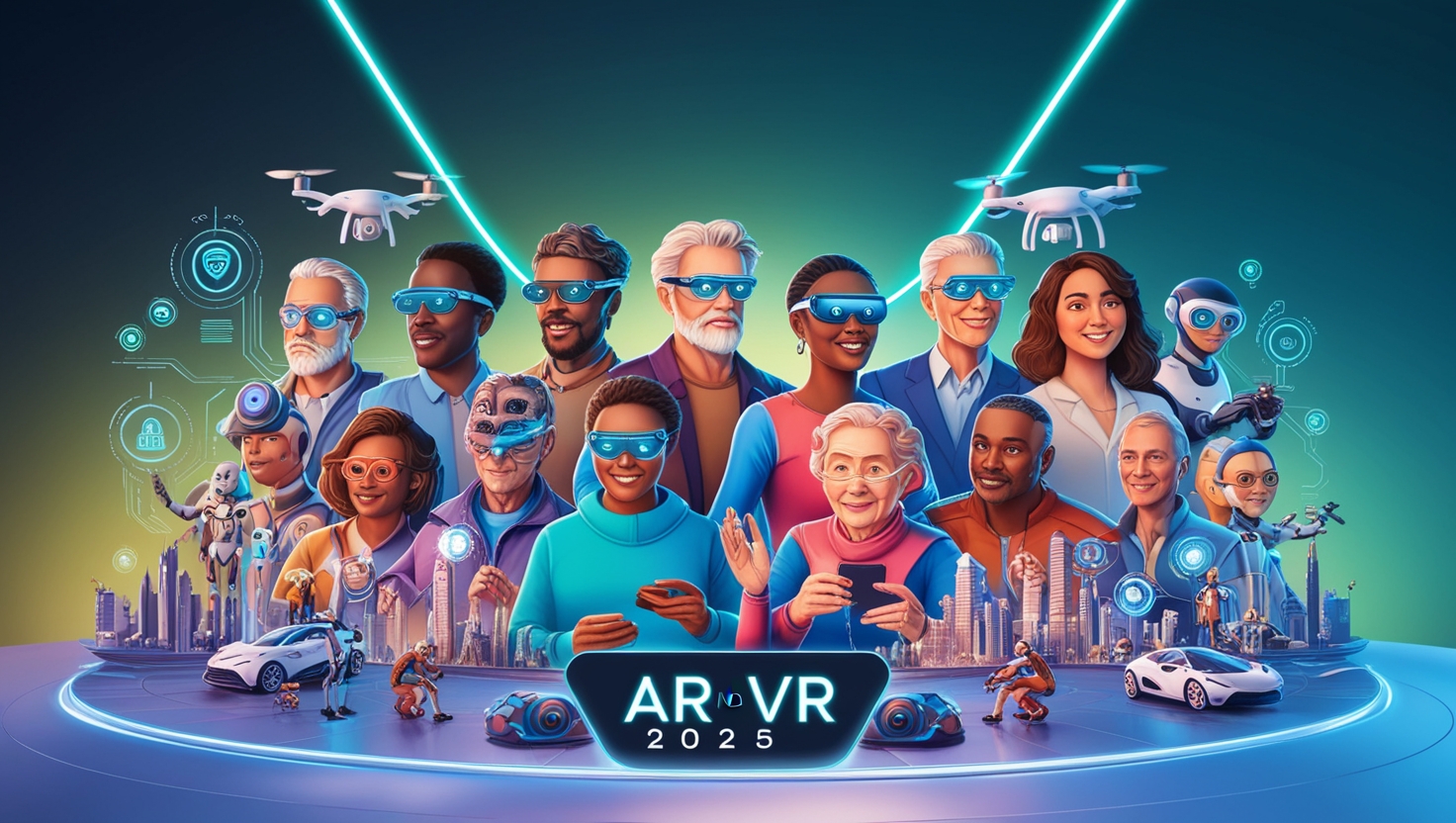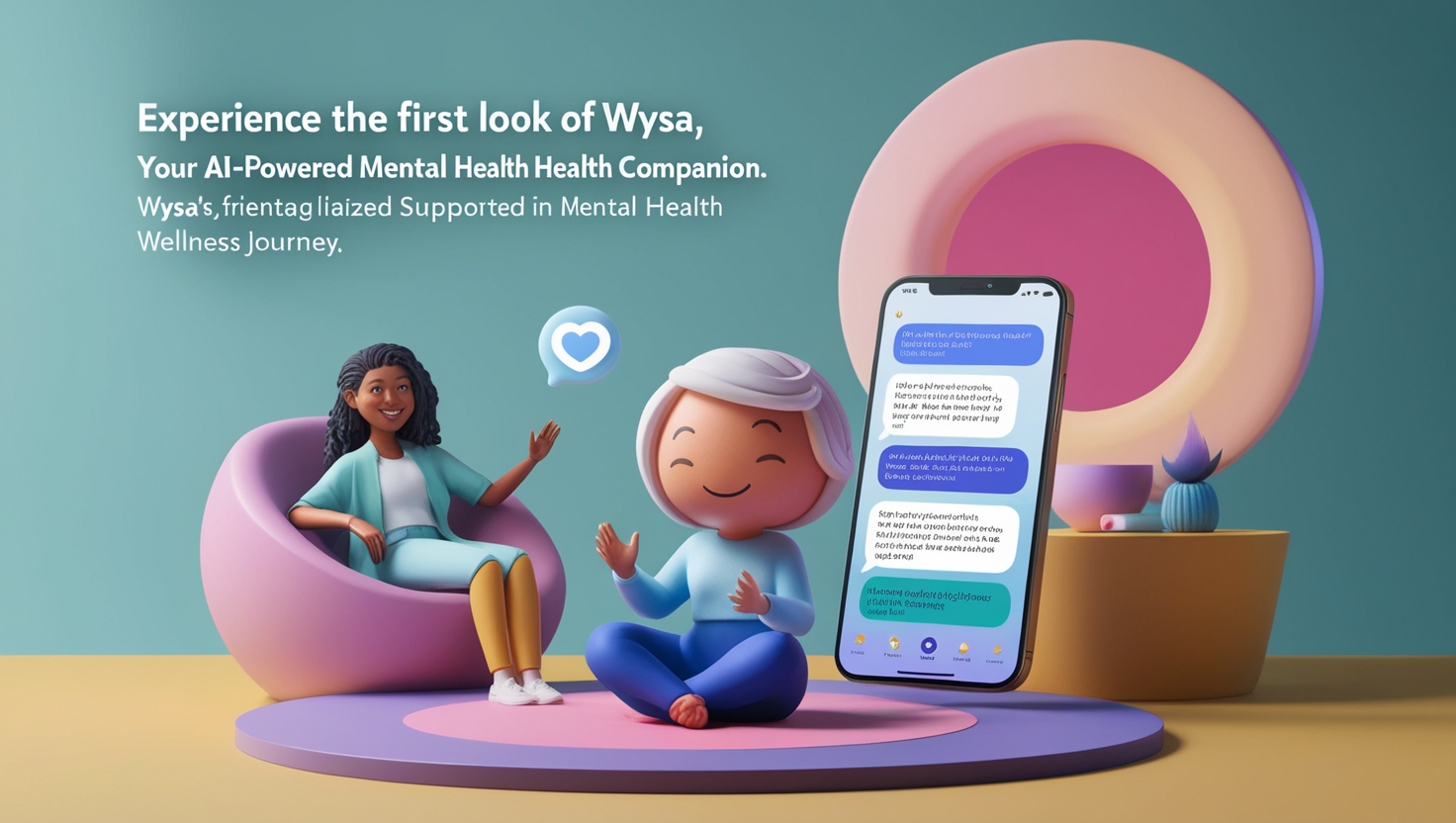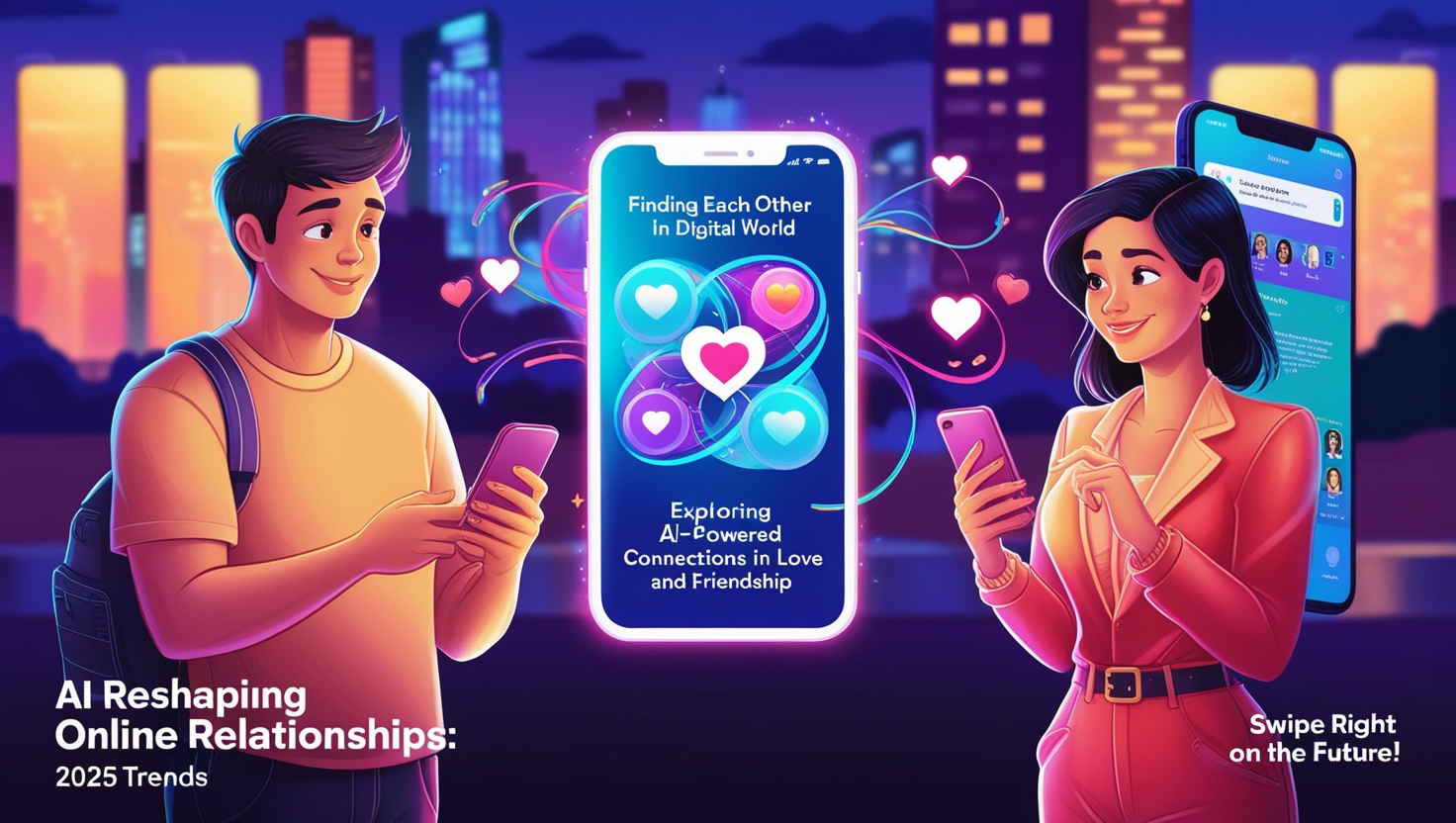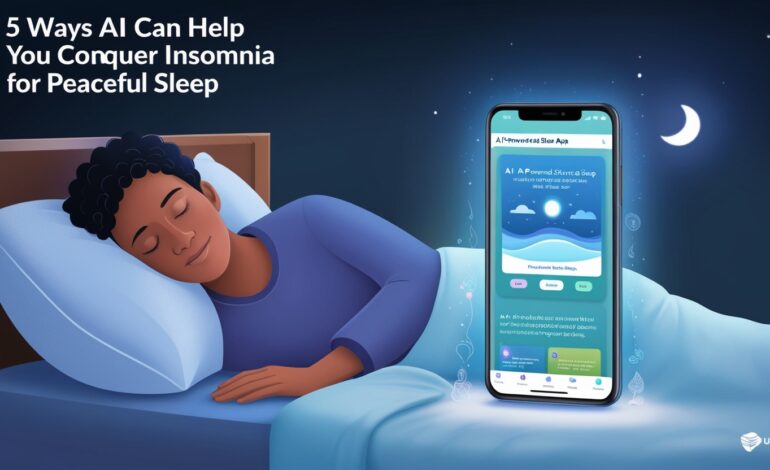
Dealing with insomnia is much more widespread than people seem to realize, with about thirty millions of US citizens suffering from sleepless nights annually. It has been estimated that more than 30 percent of adults have insomnia symptoms at some point, while 10 percent develop chronic insomnia. Sleep is also deprivation prompts diminished performance and carries with it a plethora of potential health issues including escalated anxiety and compromised immunity.

AI technology is well known to have brought out various numerous solutions to different sleep disorders such as insomnia. Intelligent applications and manufactures can sense sleep, identify disruptions and propose solutions. Using AI based sleep trackers, people can effectively determine the causes for their insomnia and make the required adjustments based on the data collected.
Mobile applications, such as virtual sleep coaching applications introduce users to mindfulness exercises and appropriate breathing patterns that are well known to boost relaxation and therefore, the quality of sleep. Just implement these Artificial Intelligence interventions and thousands of people can get their sleep back with trials revealing that sleep quality increases by 25%. The use of AI in sleep makes it possible for people to deal with insomnia and have undisturbed, restful night’s sleep.
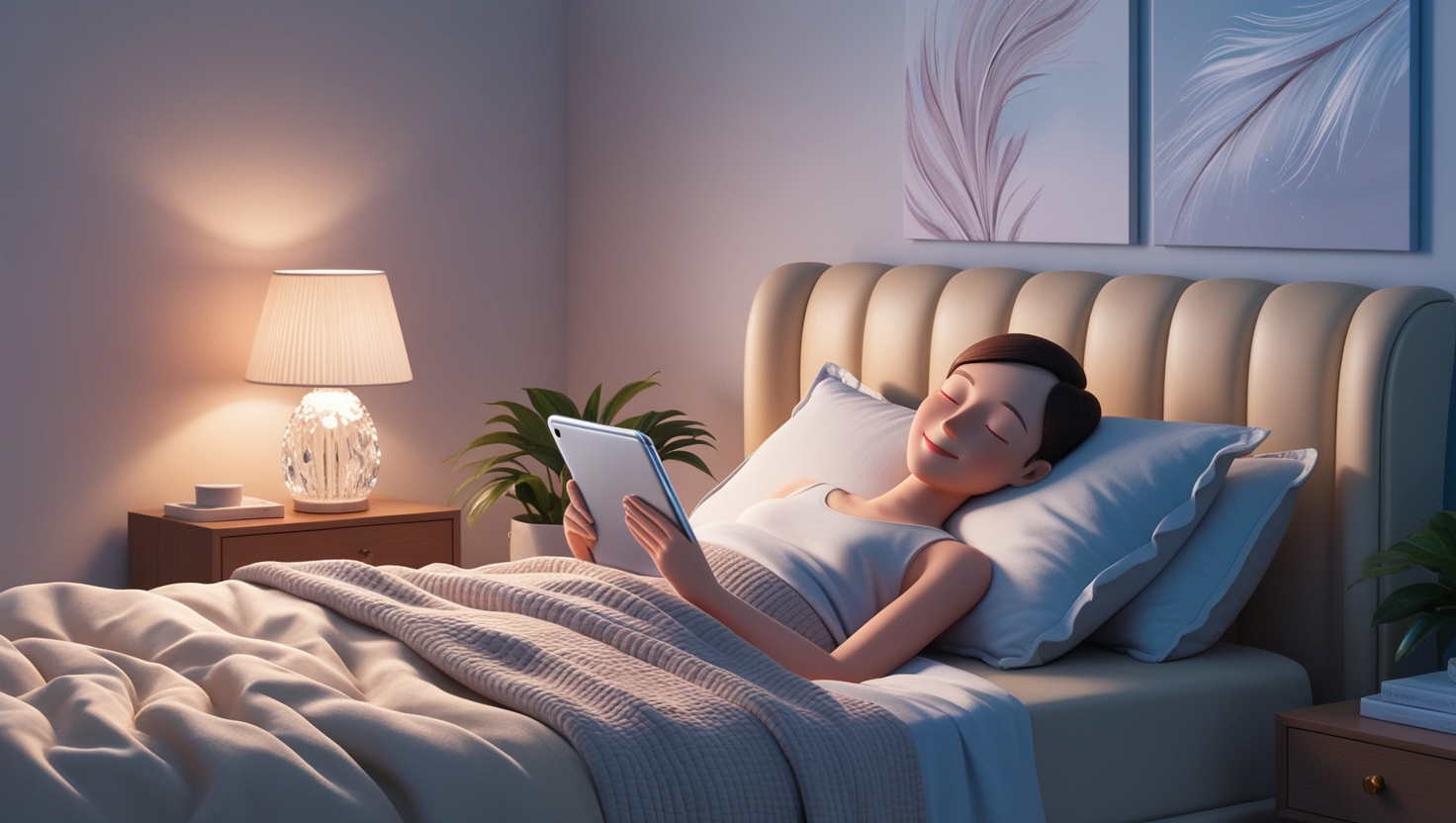
Table of Contents
ToggleWhat is Insomnia?
It is characterized by the inability to fall asleep, to maintain sleep, to wake up too early and not being able to regain the necessary amount of sleep to fulfill daily requirements. WHO states that globally 10-15% of adults often have chronic insomnia, whereas 20-30% of the same population sometimes have insomnia.
Consequences of Sleep Deprivation In Insomnia: Mental and Physical Health
Lack of sleep interferes with cognitive function and almost every aspect of physiology hence causes a host of effects. Insomnia is mostly related to increased anxiety and depression as inadequate sleep stimulates mood disturbances and cognitive decline.
Hunrn Physically, insomnia translates to a compromised immune system, high susceptibility to diseases like heart diseases and diabetes, as well as poor quality of living. They observed that the continuous effects of sleeplessness, leads to weariness, lowered efficiency, and a poor standard of living, where those involved with insomnia require solutions to their problems.
The Role of AI From Insomnia to Peaceful Sleep
AI technologies are continually redefining sleep health since they provide tailored methods that improve sleep pattern knowledge. This way AI can approach specific behaviors and offer solutions that do not limit themselves to wearables that etc. can track the sleep stage throughout the night and apps that suggest to the users proper relaxation techniques to have better night sleep.
| AI Technology | Description |
|---|---|
| Sleep Trackers | Wearable devices that monitor sleep patterns and stages. |
| Smart Sleep Apps | Applications that recommend personalized sleep routines and relaxation techniques. |
| Environmental Sensors | Devices measuring room conditions and suggesting adjustments for better sleep. |
| Predictive Analytics | Systems that analyze data to anticipate disruptions and provide preventive solutions. |
| Virtual Sleep Coaches | Platforms offering tailored advice and support based on individual sleep habits. |
Improve Sleep Quality with AI-Powered Sleep Trackers
AI-powered sleep trackers are advanced devices that monitor and analyze sleep patterns using sensors like heart rate monitors and accelerometers. They collect data on sleep duration, stages (light, deep, REM), and overall efficiency, offering users valuable insights into their sleep behavior.
By leveraging AI, these trackers can detect patterns and correlations between sleep quality and lifestyle factors such as diet, exercise, and stress. This analysis empowers users to make informed decisions to enhance their sleep health, ultimately improving their overall well-being.
Benefits
- Personalized Insights: Tailored recommendations based on individual sleep data.
- Disruption Detection: Identifies sleep anomalies like restlessness and irregular heart rates.
- Actionable Feedback: Offers specific strategies to improve sleep quality.
- Trend Analysis: Tracks changes over time to reveal factors impacting sleep.
- Lifestyle Integration: Links lifestyle choices to sleep quality for informed decision-making.
| Sleep Tracker | Features |
|---|---|
| Fitbit | Tracks sleep stages, heart rate, and offers personalized insights; includes a silent alarm feature. |
| Oura Ring | Compact design; monitors sleep quality, heart rate variability, and body temperature; provides a readiness score. |
| Whoop Strap | Focuses on recovery; tracks sleep performance and strain; provides personalized coaching insights. |
| Garmin | Monitors advanced sleep metrics and overall wellness; integrates with fitness tracking for a holistic view. |
| Apple Watch | Tracks sleep duration and quality; offers bedtime reminders and sleep tracking features integrated with health data. |
Smart Sleep Environments
Introduction of AI in Bedroom Environment
Smart sleeping quarters adjust the sleep experience with the help of Artificial Intelligence. Smart home devices such as dimmable lights, smart thermostats, and white noise Machine allows the individuals to enhance their sleep quality.
Dialights imitates natural light for proper students’ circadian rhythm regulation, while smart thermostats help maintain appropriate sleeping temperatures. White noise devices offer appropriate background sounds that can be used to shut out annoying noise interferences for a good night’s sleep.
This integration enables individuals to have their own accommodation preference on the bed due to theirOLF sleep patterns. It is stressed that an individual can improve relaxation and facilitate further sleep to make spaces calming and more healthy.
Benefits
- Ambient adjustments in the bedroom enhance sleep quality.
- Dimming lights in the evening promotes melatonin production.
- Maintaining a room temperature of 60 to 67 degrees Fahrenheit prevents disturbances.
- White noise masks sudden sounds, helping individuals stay asleep longer.
- Improved sleep quality boosts mood, energy levels, and cognitive performance.
| Device Type | Description | Benefits |
|---|---|---|
| Smart Bulbs | LED lights that can change brightness and color. | Enhances relaxation and sleep onset. |
| Smart Speakers | Voice-activated devices that play music or sounds. | Provides calming sounds or guided meditations. |
| Sleep Sound Machines | Devices designed to produce white noise or nature sounds. | Masks disruptive noises and promotes deeper sleep. |
| Sleep Trackers | Wearables that monitor sleep patterns and quality. | Offers insights for sleep improvement. |
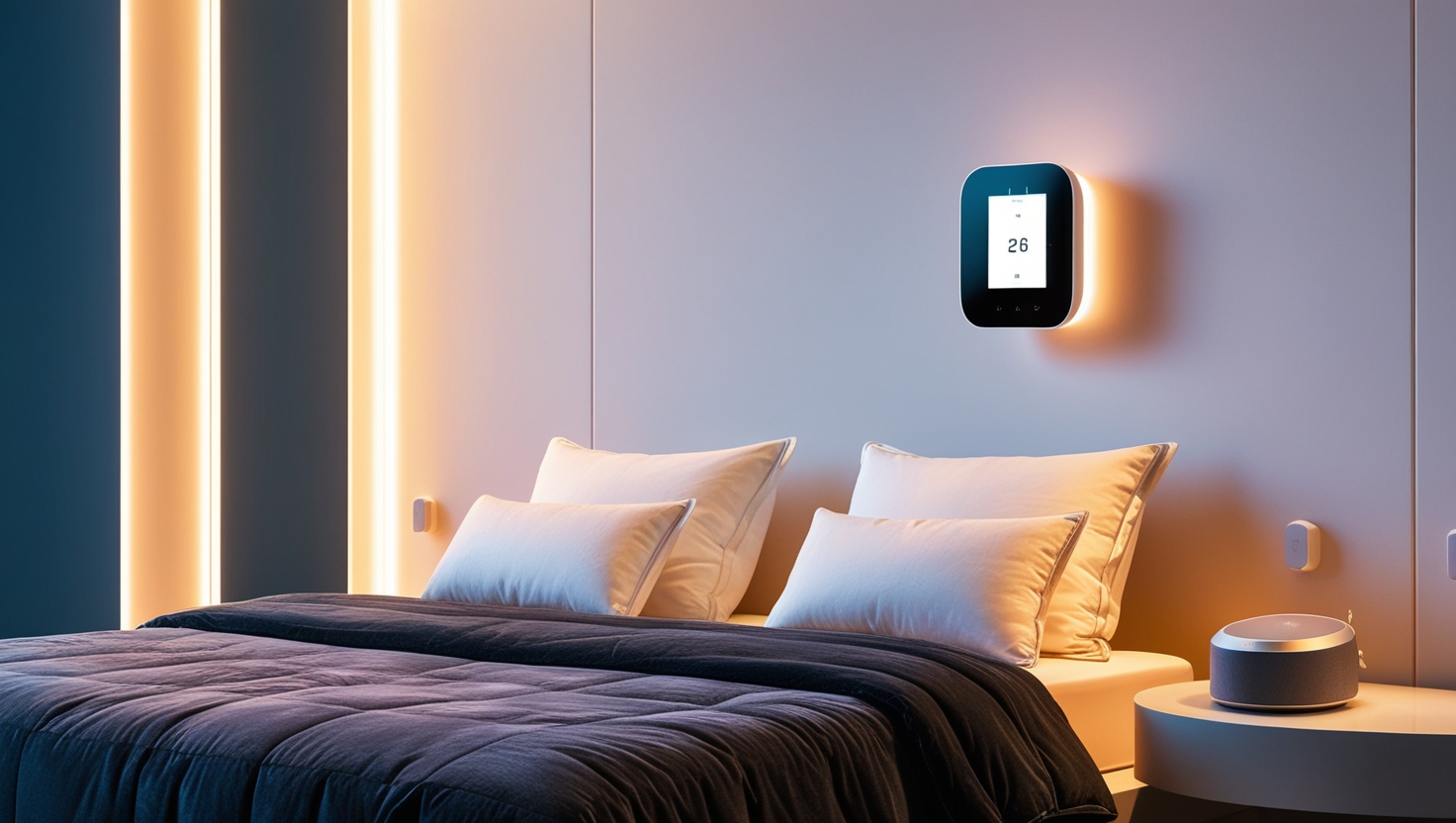
Relaxation and Meditation Apps:
Based on Artificial Intelligence
Use of AI in Meditation and Relaxation
It has been established that AI technology greatly improves the methods of meditation and relaxation because AI algorithms can learn about user’s preferences and activity patterns. That way, it is possible to create specific relaxation sessions that are compatible with the daily-stress level, preferred form of meditation, and relaxation objectives.
Moreover, the use of AI helps meditation apps be relevant to users’ requirements at any given period in the future. For example, if a user has challenges of dozing off, then the app can suggest specific guided meditations or some sound files that are likely to help the user achieve a better dossing off position thereby creating the much needed bond with the meditation process to enhance its usefulness.
Benefits
- Reduces Anxiety and Stress: Lowers anxiety and stress, key contributors to insomnia.
- Promotes Relaxation: Calms the mind and reduces cortisol levels for smoother sleep transitions.
- Enhances Mindfulness: Focuses on the present moment, minimizing disruptive racing thoughts.
- Improves Sleep-Wake Cycle: Supports the body’s natural sleep-wake cycle for better sleep quality.
- Encourages Restorative Sleep: Fosters a peaceful transition to sleep, leading to more restorative slumber.
Popular AI Meditation Apps
Calm: This app offers meditation, sleep, music and relaxation techniques in form of guided meditations, meditative stories and music backgrounds. Its AI works based on the user’s preferences, helping them decide on which session is best for them, including narrated sleep stories for night time.
Headspace: Headspace refers to an application that provides meditation and mindfulness in a more natural approach and user-friendly. It uses AI and creates a personalized program based on the user’s behavior and has “sleepcasts,” for setting up the most suitable sleep environment.

Artificial Intelligence for Cognitive Behavioral Therapy
of Insomnia (CBT/I)
Introduction to CBT-I
CBT-I is a timed program aimed at solving chronic sleep disorders by working on the patterns of thinking and behavior that lead to insomnia. It involves strategies like sleep deprivation, changing how one thinks as well as controlling stimuli in a bid to promote suitable sleeping practices.
CBT-I accentuates what makes people sleep, and once it is identified, the patient is endowed with practical ways of sorting it out with no medication. This method is effective not only in improving the quality of sleep but also in patients’ psychological status; therefore, it is an excellent treatment for sleep disturbances.
They largely specify that as the population hears about the effectiveness of the CBT-I, there is incorporation of technology in implementing the method. Increased availability and application of artificial intelligence (AI) enable the advanced implementation of the traditional CBT-I techniques to be used by people suffering from insomnia.
AI-Powered CBT-I Tools
Sleepio:
Sleepio is an online sleep enhancement program, which aims to battle insomnia utilising CBT elements, adapted to the needs of the user. From this perspective, the service begins with a sleep test and offers a complete action plan with individual approaches that change with the users’ improvement.
Woebot:
Woebot is an AI base chattbot which is specialized in delivering mental health supports, one of which is helping patient overcome insomnia through conversations. Due to its self-service basis, it provides cognitive behavioral interventions together with tips and tools that are specific to each client’s narrative and that build the user’s awareness of their perceived sleep patterns.
Statistic
- Meta-analysis: 70-80% of participants report improved sleep quality.
- User Satisfaction: High user satisfaction rates with AI CBT-I tools.
- Accessibility:Increased accessibility leads to higher engagement.
- Cost-Effectiveness: AI-driven CBT-I is often more cost-effective than traditional therapy.

Future Trends:
AI and Sleep Health
The future of sleep health is therefore positioning itself to improve how it uses emerging AI technologies to comprehensively understand sleep disorders. Such developments as genetic testing, risk assessment that apply professional genetic and lifestyle-referenced approaches make it possible to implement individualized treatments based on genetic predisposition and other features.
These AI technologies in this area advance as the diagnosis and treatment of sleep disorders become enhanced. Sleep-positive respectively can even predict the disturbances and make precautions such that can be put in place prior to the happening of the problem.
It is more decisive that the integration of AI into sleep health can significantly change treatment’s public availability. Professionals do think that future advancements in these technologies will bring new solutions to help those, who suffer from sleep disorders, enhance the quality of sleep and enhance overall well-being for millions of people.
Benefits
- AI will provide tailored solutions for sleep disorders.
- Future tools may enhance diagnostic accuracy.
- Real-time monitoring will reveal individual sleep patterns.
- Treatment plans will adapt based on user data.
- This approach aims to improve treatment effectiveness and sleep quality.
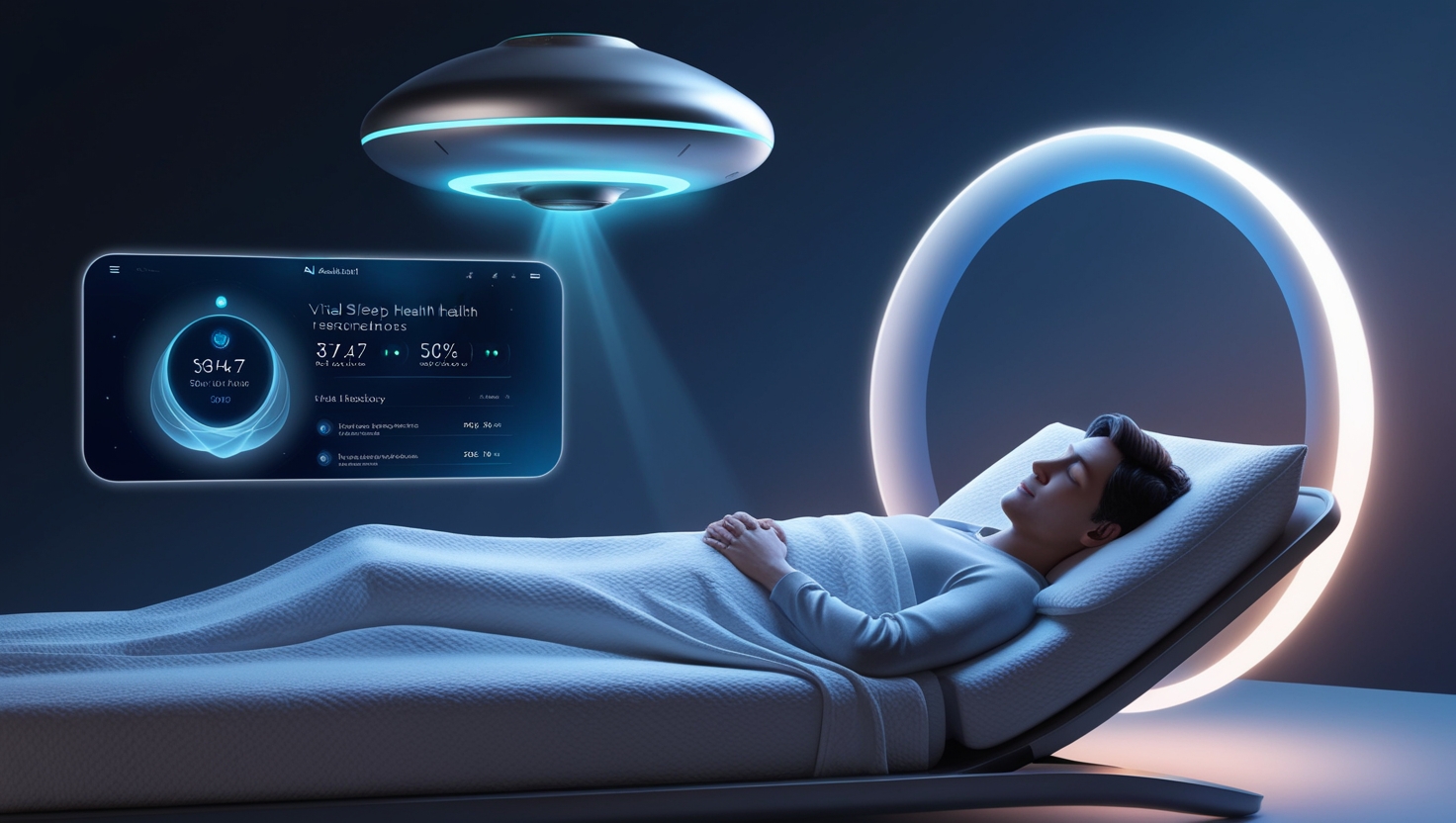
Conclusion:
AI presents new over-the-counter solutions for insomnia by employing smart bedding and sound environments; AI meditation apps that understand the specific patient’s situations and needs; AI-supported CBT-I tools. These technologies improve sleep quality since they address stress and assist in the provision of the support.
FAQ
How can AI technology help improve my sleep quality?
AI analyzes sleep patterns and provides personalized recommendations to enhance sleep quality, suggesting optimal sleep schedules and relaxation techniques.
What features should I look for in an AI-powered sleep app?
Look for features like sleep tracking, personalized insights, guided meditation, soundscapes, and integration with wearable devices.
Can AI help identify the causes of my insomnia?
Yes, AI can analyze habits and environmental factors to pinpoint triggers of insomnia, helping you address them effectively.
Are AI sleep solutions effective for everyone?
Results may vary; AI solutions work best as part of a comprehensive sleep strategy, including lifestyle changes and professional guidance.
How does AI differ from traditional sleep aids?
AI focuses on data analysis and personalized insights to address root causes, promoting healthier habits rather than relying solely on medications.


